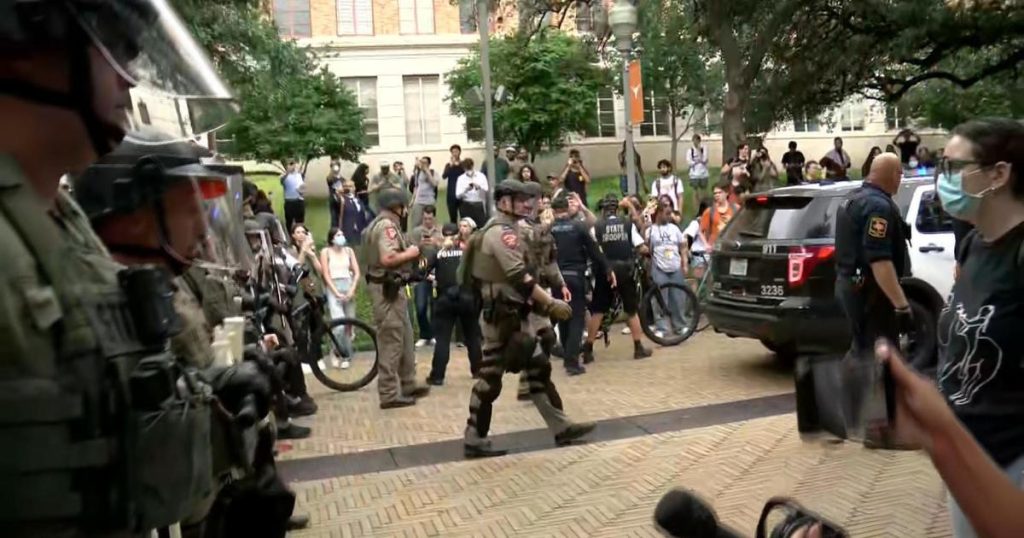Pro-Palestinian protests have been intensifying at universities across the United States in recent weeks. Demonstrations have been seen in states such as California, Texas, and New York, with tensions running high. Columbia University has been a focal point of these protests, with a contentious demonstration entering its eighth day and leading the school to cancel in-person classes. The situation at Columbia has garnered significant attention, including a visit from House Speaker Mike Johnson.
The protests have been fueled by the ongoing conflict between Israel and Palestine, with many students expressing their solidarity with the Palestinian people. The situation in the Middle East has long been a contentious issue, and the recent violence has only further heightened tensions. Pro-Palestinian activists are calling for an end to Israeli occupation and the targeting of Palestinian civilians, while also demanding justice and accountability for those affected by the conflict.
The demonstrations at U.S. universities reflect a broader international movement in support of Palestine, with protests taking place in various countries around the world. The issue has sparked intense debate and controversy, with supporters of Israel and Palestine both voicing their opinions. The protests have also highlighted the importance of free speech and the right to peacefully demonstrate, as students continue to advocate for their beliefs and raise awareness about the situation in the Middle East.
The impact of the protests on university campuses is significant, as they have disrupted normal operations and forced administrations to address the concerns of students. The cancellation of classes at Columbia University is just one example of how these protests are affecting academic life. Students are using their platforms to raise awareness about the conflict and push for action from their universities and political leaders. The protests are also drawing attention to the role of the United States in the Israeli-Palestinian conflict, with many calling for a change in U.S. policies and support for Palestinian rights.
Despite the challenges and controversies surrounding the protests, many students see them as a necessary and important way to bring attention to the situation in Palestine. The demonstrations have united students from diverse backgrounds and ideologies, all coming together to support a common cause. The protests are not only about raising awareness but also about pushing for concrete changes and solutions to the ongoing conflict. As the protests continue to gain momentum, it is clear that the voices of students are being heard and that the issue of Palestine is one that will continue to be at the forefront of discussions on college campuses and beyond.
In conclusion, the pro-Palestinian protests at U.S. universities are a reflection of the growing international movement in support of Palestine and the push for justice and accountability in the ongoing conflict with Israel. The demonstrations have sparked intense debate and controversy, with students using their platforms to advocate for their beliefs and raise awareness about the situation in the Middle East. Despite the disruptions caused by the protests, many students see them as an important way to push for change and highlight the injustices faced by the Palestinian people. As the protests continue to gain momentum, it is clear that the voices of students will continue to play a significant role in shaping the conversation around the Israeli-Palestinian conflict.


